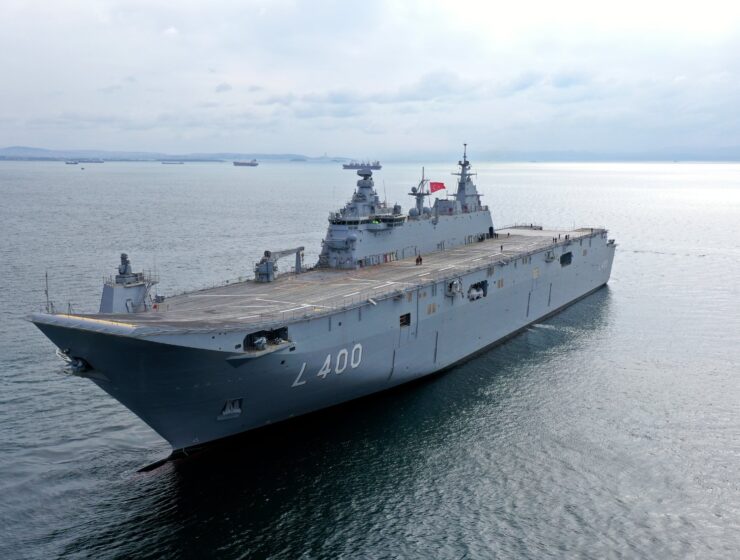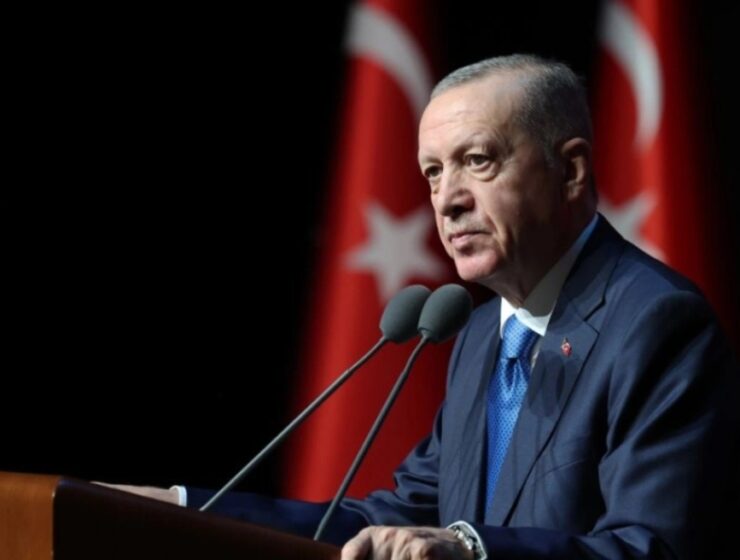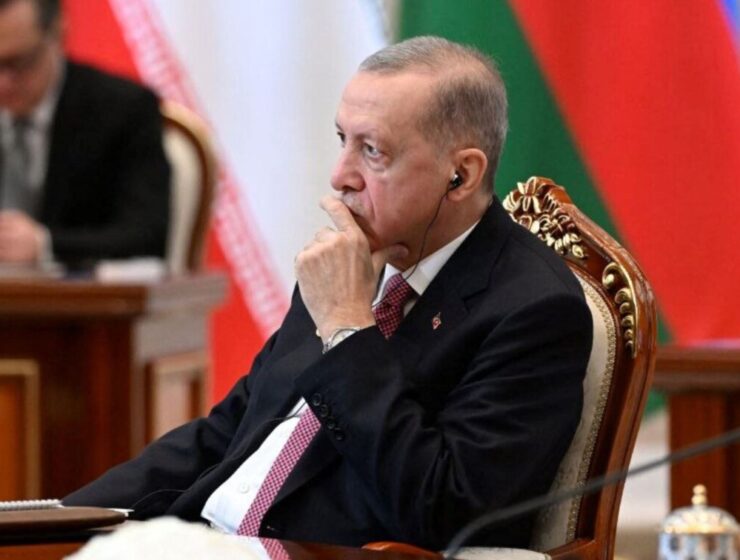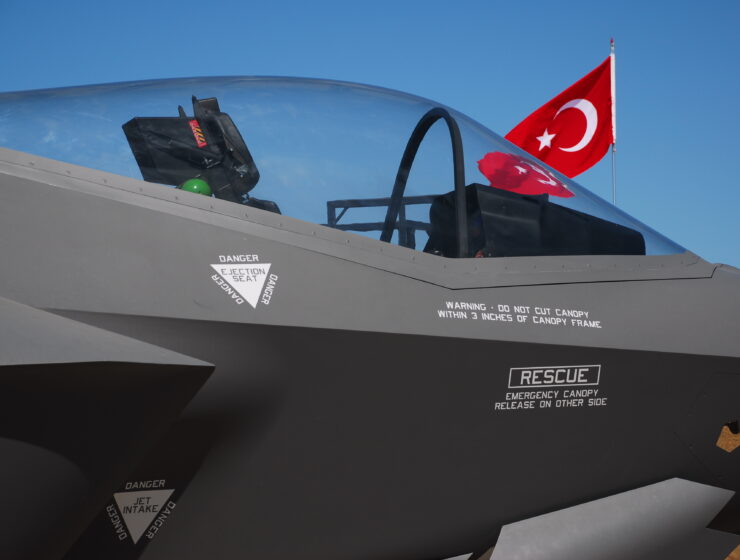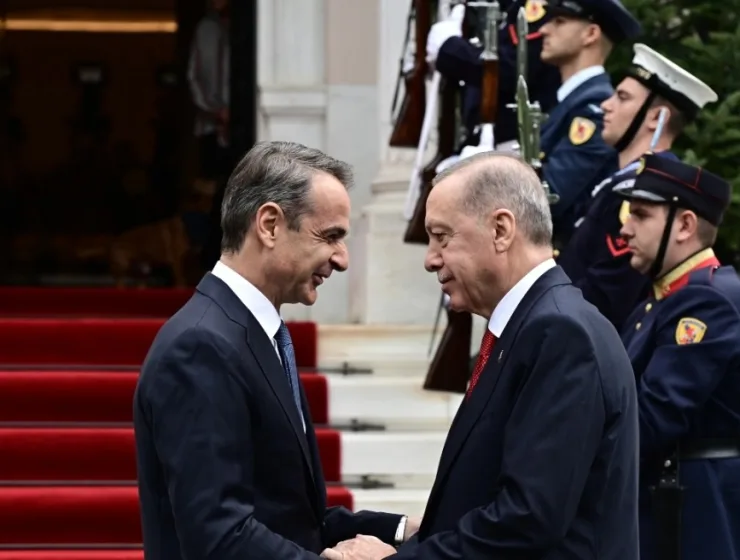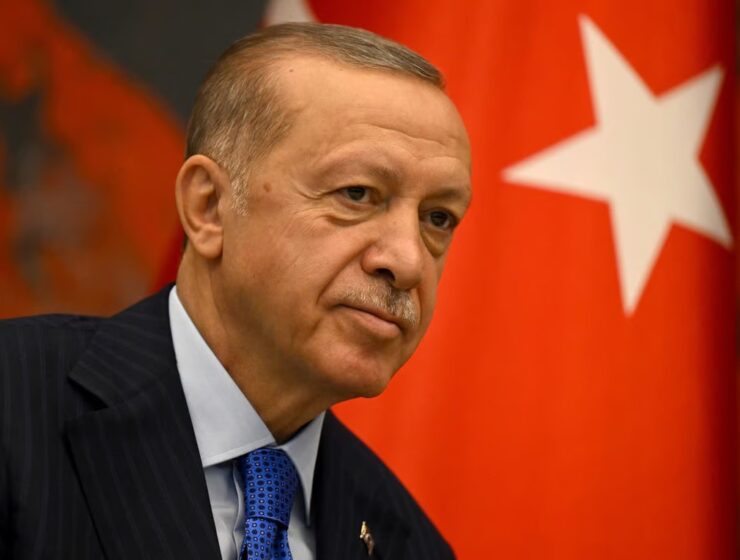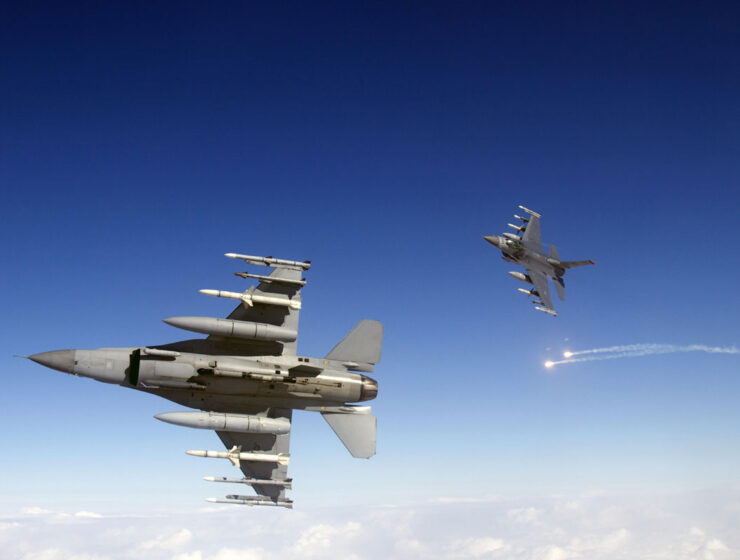The launch of two new Turkish frigates highlights Ankara's expanding naval ambitions in the Mediterranean, Aegean, and Black Seas, bolstered by its growing domestic defense industry. Rooted in the "Blue Homeland" doctrine, this strategy has fueled maritime disputes with Greece and Cyprus over boundaries and resources. With 29 ships under construction and a defense budget of $45 billion for 2025, Turkey aims to assert itself as a regional and global naval power, reducing reliance on Western suppliers and promoting its advanced unmanned surface vehicle programs.
Tag: Erdoğan
President Erdoğan's declaration that Eskişehir's "borders" extend to Thessaloniki, Cyprus, Crimea, and Samarkand has reignited debate about the scope of Turkish influence and the resurgence of "Greater Turkey" ideology. While framed as a celebration of Turkey's historical and cultural reach, the rhetoric raises concerns about regional ambitions and expansionist policies.
Turkish President Recep Tayyip Erdoğan's recent comments on Jerusalem raise significant questions about Turkey's sovereignty over Istanbul. While his government claims to protect religious heritage, Erdoğan's actions, such as the conversion of major Christian landmarks into mosques, tell a different story. These moves not only challenge the status of Jerusalem but also highlight concerns about religious freedom and minority rights within Turkey. As discussions on Jerusalem’s status unfold, the international community may reconsider its stance on Istanbul's sovereignty.
American officials warn of a potential large-scale Turkish military operation against U.S.-backed Kurds in northern Syria, with significant Turkish forces massing near Kobani. A Kurdish official has pleaded for intervention from then President-elect Trump to prevent what could be a catastrophic invasion. Recent diplomatic efforts have failed to de-escalate the situation.
Recent developments have cast doubt on rumors that Turkey is close to acquiring F-35 fighter jets from the USA. The United States has reportedly told Turkey that the sale will not proceed unless Turkey removes its Russian S-400 missile systems, highlighting ongoing tensions between the two NATO allies.
NATO Secretary General Mark Rutte will visit Greece and Turkey next week for meetings with key leaders, including Prime Minister Mitsotakis and President Erdoğan. The visits follow Greece's successful hosting of NATO's largest air exercise in Europe, Ramstein Flag 24.
Turkey has severed all diplomatic ties with Israel, President Recep Tayyip Erdoğan announced, vowing to hold Prime Minister Benjamin Netanyahu accountable for Israel's actions in Gaza, which have resulted in over 43,000 Palestinian deaths. Erdoğan condemned the offensive and pledged to pursue all available avenues to ensure accountability, marking a significant escalation in the deteriorating relationship between the two nations.
The European Union's recent report highlights rising tensions with Turkey over key issues such as the conversion of Hagia Sophia into a mosque, the aggressive "Blue Homeland" doctrine, and prolonged disputes in the Aegean and Cyprus. These developments pose challenges to EU-Turkey relations and emphasize the need for alignment with European principles.
The meeting between Greek Prime Minister Kyriakos Mitsotakis and Turkish President Recep Tayyip Erdoğan is confirmed for Tuesday in New York, addressing key issues such as migration, regional developments, and bilateral relations.
Prime Minister Kyriakos Mitsotakis of Greece and President Recep Tayyip Erdoğan met during the NATO Summit in Washington, D.C., using the opportunity to discuss bilateral relations and the need for peace in both Ukraine and Palestine. Erdoğan emphasized Türkiye's commitment to a spirit of solidarity with Greece, based on good neighborly relations.
Turkish President Recep Tayyip Erdoğan on Dec. 26 announced the discovery of an additional 58…
Congressional Hellenic Caucus Co-Chair Gus Bilirakis and Armenian Caucus Co-Chair Frank Pallone (D-NJ) were both…

